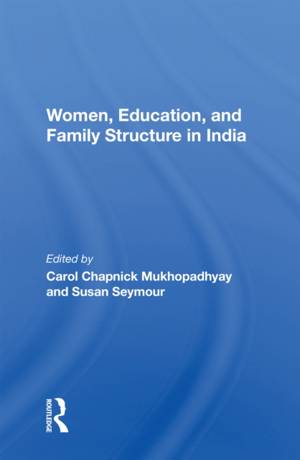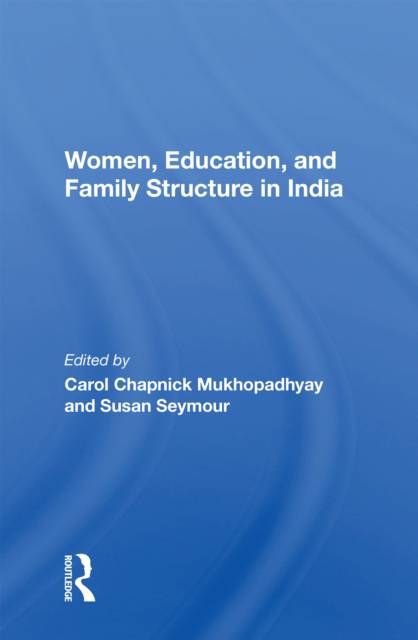
- Afhalen na 1 uur in een winkel met voorraad
- Gratis thuislevering in België vanaf € 30
- Ruim aanbod met 7 miljoen producten
- Afhalen na 1 uur in een winkel met voorraad
- Gratis thuislevering in België vanaf € 30
- Ruim aanbod met 7 miljoen producten
€ 206,45
+ 412 punten
Uitvoering
Omschrijving
Five decades of independence have produced dramatic increases in womens' educational achievements in India; but education for girls beyond a certain level is still perceived as socially risky. Based on ethnographic data and historical documents, this book explores the origins of that paradox. Contributors probe the complex relationships between traditional Indian social institutions the joint family, arranged marriage, dowry, and purdah, or sexual segregation and girls schooling. They find that a patrifocal family structure and ideology are often at the root of different family approaches to educating sons and daughters, and that concern for marriageability still plays a central role in womens' educational choices and outcomes.
Specificaties
Betrokkenen
- Auteur(s):
- Uitgeverij:
Inhoud
- Aantal bladzijden:
- 256
- Taal:
- Engels
Eigenschappen
- Productcode (EAN):
- 9780367214562
- Verschijningsdatum:
- 29/11/2021
- Uitvoering:
- Hardcover
- Formaat:
- Genaaid
- Afmetingen:
- 152 mm x 229 mm
- Gewicht:
- 629 g

Alleen bij Standaard Boekhandel
+ 412 punten op je klantenkaart van Standaard Boekhandel
Beoordelingen
We publiceren alleen reviews die voldoen aan de voorwaarden voor reviews. Bekijk onze voorwaarden voor reviews.










